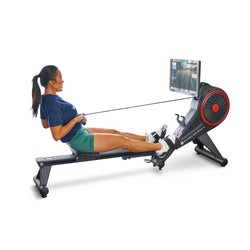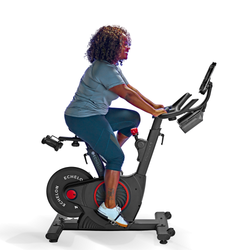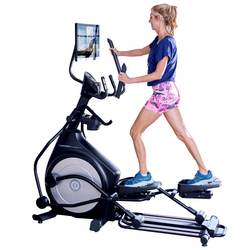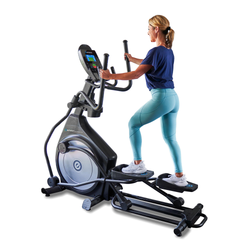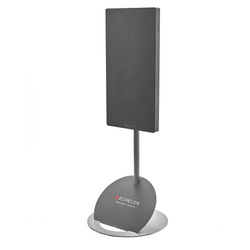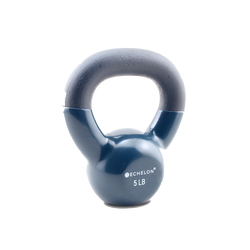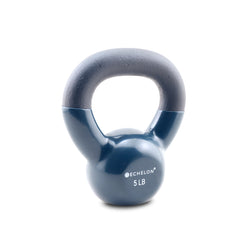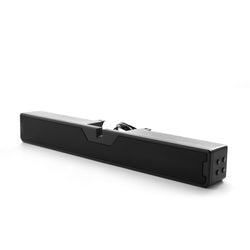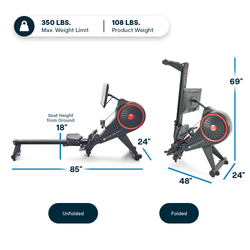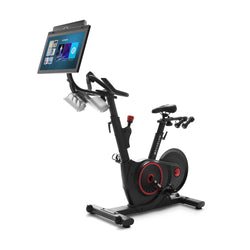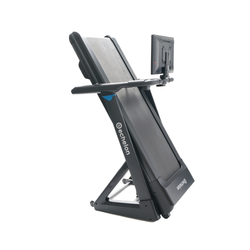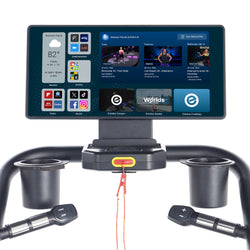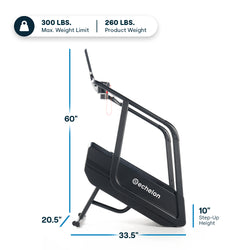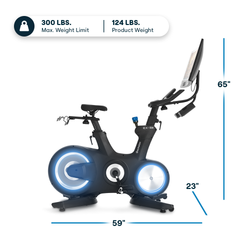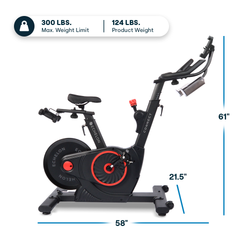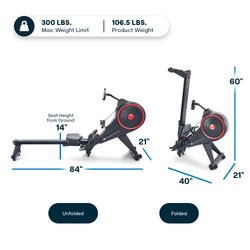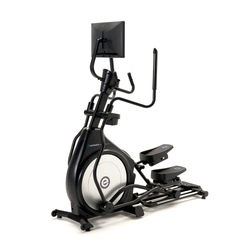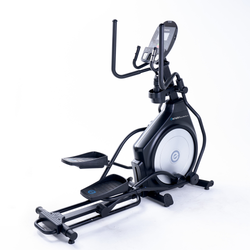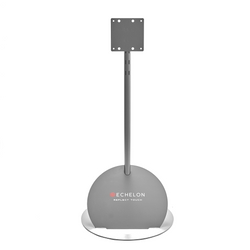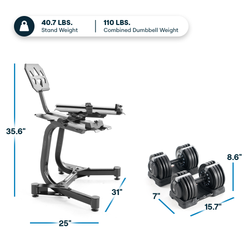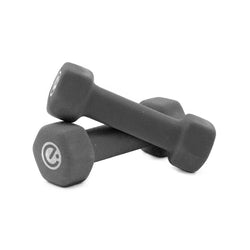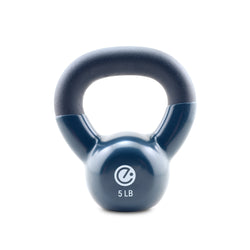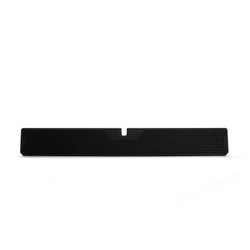A Comprehensive Guide on Menopause and Strength Training

Menopause is a transformative period in every woman's life, characterized by various physiological changes. It’s often associated with symptoms that can disrupt daily activities, such as hot flashes, mood swings, and sleep disturbances. While menopause is an inevitable part of life, its challenges don't have to be overwhelming. One effective way to manage these changes is through strength training. Here's a comprehensive guide on how strength training can help you through this period of transition and provide a host of benefits to counter menopausal symptoms.
Understanding Menopause and Its Effects
Every woman will embark on the journey of menopause, a natural phase that typically unfolds between the ages of 45 and 55. This period marks the conclusion of the menstrual cycle, heralding in a new chapter of life. Menopause, while completely natural, often brings along a suitcase of physical and emotional changes that can feel significant.
Imagine an orchestra hitting all the right notes in harmony, that's your body functioning smoothly. Now, imagine an instrument suddenly going off-tune. That's menopause. It's like your body’s hormonal balance has lost its rhythm, which may throw things off for a while. This dissonance often manifests in the form of hot flashes, weight gain, mood swings, and sometimes, sleep disturbances.
Understanding the effects of menopause is like learning to read the new sheet music for your body's orchestra. It's important to remember that this isn't a time of disorder, but rather a time of adjustment. So let's explore this new score, shall we?
The Role of Strength Training in Menopause Management
Strength training, more than just the domain of athletes or the young at heart, can be a potent weapon in your arsenal against the impacts of menopause. Often overlooked, this form of exercise goes beyond merely toning your muscles or aiding in weight loss.
During menopause, the natural decline in estrogen levels can lead to a loss in bone density, increasing the risk of osteoporosis. But here's the good news – strength training can be a key ally in maintaining your bone health. By applying stress to the bones through weight-bearing exercises, you can stimulate the cells that promote bone growth, helping to counteract this menopause-induced vulnerability.
Also, the hormonal shifts during menopause can lead to changes in body composition, with a tendency to gain fat and lose muscle mass. Engaging in regular strength training can help you build lean muscle mass and boost your metabolism, helping you maintain a healthier weight and body composition.
Don't let the term "strength training" intimidate you. You won't turn into a bodybuilder overnight! Instead, you might be surprised at the newfound strength and energy levels that will help you embrace this new phase of life with vigor. Not to mention, you'll be safeguarding your health for the future.
Additionally, strength training can offer emotional benefits, which can be just as important during menopause. Regular exercise releases endorphins, known as "feel-good" hormones, that can help manage mood swings and alleviate symptoms of depression or anxiety.
But the most empowering part of strength training? It allows you to take control. Rather than seeing menopause as an unruly conductor wreaking havoc on your body’s orchestra, strength training allows you to pick up the baton. You're not just adapting to the new symphony your body is playing, you're conducting it with confidence and mastery. It's more than just managing menopause – it's about thriving through it.
Starting Your Strength Training Journey
Embarking on a strength training journey may seem like a daunting task, especially if you're new to the fitness world. But remember, every journey starts with a single step, and your path to menopause management is no different. Let's break it down into manageable steps to make the process less intimidating.
You don't need to jump into a rigorous routine right away. Instead, think of your training as a slow dance, gradually picking up tempo as you get comfortable with the moves. Start with simple, low-impact exercises like light dumbbell curls or leg presses. The aim isn't to lift heavy weights at the onset, but rather to familiarize yourself with the movements and prepare your muscles for the upcoming challenge.
Focus on building a routine that targets all the major muscle groups in your body – the legs, hips, back, abdomen, chest, shoulders, and arms. Mix up your routine with a combination of exercises for each group to keep things interesting and to ensure you're developing strength evenly across your body. Balance is the key here, and it's important to not overwork one area at the expense of another.
Aim for two to three strength training sessions per week, leaving at least one day in between for your body to rest and recover. As you become more comfortable, gradually increase the intensity of your workouts. Listen to your body, and don’t push yourself beyond your limits. Strength training is a journey, not a race.
Lastly, remember to warm up before you start exercising and cool down afterwards. This will not only prepare your muscles for the workout and help prevent injuries, but it will also help increase your flexibility and mobility, both of which are essential for overall health and well-being.
So, don't let the notion of strength training intimidate you. Lace up your trainers, grab a set of light weights, and step onto the path of strength and wellness. This journey is all about empowering yourself, managing your menopause symptoms, and ultimately, composing a symphony of health and vitality during this transformative stage of life. You've got this!
Nutritional Needs During Menopause
Fueling your body with the right nutrients during menopause is as important as a well-curated exercise regime. Remember, your diet plays a vital role in how your body responds to this transitional phase and supports your strength training efforts.
As estrogen levels drop during menopause, your body's needs change. It's like switching from gasoline to diesel in a car - the engine runs a bit differently. This shift may increase your need for certain nutrients, including calcium and vitamin D, to help maintain bone health in the face of declining estrogen levels. Incorporating dairy products, leafy greens, and fortified foods in your diet can help meet these needs.
Another change you may notice is a slower metabolism, which could lead to weight gain if not managed properly. To help keep your weight in check and support your strength training efforts, focus on consuming lean proteins. Foods like poultry, fish, and legumes can provide the protein needed for muscle repair and growth while keeping you feeling full and satisfied.
Don't forget about healthy fats! Avocados, olive oil, and nuts are excellent sources of monounsaturated fats that can help lower your bad cholesterol levels and reduce your risk of heart disease - a potential concern during menopause.
The need for hydration also cannot be underestimated. Water aids in digestion, keeps your skin glowing, and helps transport nutrients around the body. Plus, staying hydrated can help manage those pesky hot flashes.
Finally, be mindful of your iron intake. Lower estrogen levels mean your body absorbs less iron, making you more susceptible to anemia. Lean meats, poultry, and seafood are good sources of iron.
Crafting a balanced, nutrient-dense diet during menopause can feel like solving a puzzle. But, with a little research and planning, you can design a diet that works harmoniously with your strength training regime and your body's needs during this stage of life. In essence, think of your diet as the music sheet that complements the symphony your body is playing during menopause. Happy eating!
Managing Symptoms and Challenges During Menopause
Navigating the waters of menopause can sometimes feel like steering a ship in a storm. The waves of hot flashes, the gusts of mood swings, the fog of sleep disturbances – these are just some of the obstacles you may face. Yet, just as every storm has its lull, so too does menopause present opportunities for managing its challenges.
Just as a captain knows their vessel, understanding your body is your compass in this journey. Being aware of your body's responses to different triggers can help you identify and manage troublesome symptoms. For instance, some women find that spicy foods, caffeine, or alcohol can exacerbate hot flashes. By keeping a symptom diary, you can identify your triggers and make lifestyle adjustments as needed.
Similarly, listening to your body's cues can help you fine-tune your strength training routine. If a particular exercise exacerbates your symptoms or doesn't feel right, don't hesitate to modify it or try something else. Remember, this isn't about fitting into a predetermined mold but finding what works best for you.
As you work to conquer the physical challenges of menopause, don't neglect your emotional well-being. Mood swings can often ride the coattails of menopause, making the roller coaster of life feel a bit more intense. Reach out to your support network during these times. Share your experiences with friends or join a local or online support group. Sometimes, just knowing you're not alone in your journey can provide a great deal of comfort.
And finally, remember the power of patience. Menopause isn't an overnight event, but a journey that unfolds over time. And just as the sea has its rough and calm days, so too will your menopausal journey. On tough days, remind yourself that these challenges are not permanent and that with each passing day, you're growing stronger and more resilient. On the calmer days, celebrate your victories, no matter how small.
In navigating the challenges of menopause, remember this isn't just about surviving the storm, but learning to dance in the rain. By embracing the power of strength training, tuning into your body's cues, nurturing your emotional well-being, and practicing patience, you'll become the captain of your menopause journey, navigating the waves with confidence and grace.
Listening to Your Body and Making Adjustments
As you delve into the world of strength training, the most harmonious symphony you could conduct is the one that listens to your body's cues. The truth is, we all sing to our own unique rhythm and tempo. What sets the stage for an epic performance in one person might not strike the right chord in another.
Think of strength training as an open dialogue between you and your body. If a particular exercise feels too strenuous or causes discomfort, it's your body signaling you to adjust your routine. Respect these signals, and don't hesitate to modify the intensity, frequency, or type of exercise to better suit your capabilities.
For instance, you may find that your body responds better to lighter weights with more repetitions, rather than pushing for heavier weights. Or perhaps you discover that incorporating more rest days into your routine helps to maintain your energy levels and prevent fatigue. These fine-tunings aren't signs of failure; they're simply notes in the symphony of your strength training journey.
Remember, this isn't about conforming to a specific workout regimen but about crafting a routine that suits your individual needs and abilities. It's about harmonizing with your body's rhythm, not imposing a foreign beat upon it.
Also, bear in mind that your body's needs may change over time, particularly during menopause. Certain exercises that felt great before may become less comfortable, or you may find you need more recovery time between workouts. Stay attuned to these changes, and be prepared to adjust your routine as needed.
In this symphony of strength training, you're not just the conductor; you're also the composer. By listening to your body's cues and making the necessary adjustments, you're creating a fitness routine that resonates perfectly with your body's rhythm.
Don't strive for perfection in your strength training journey. Instead, aim for progress. And remember, progress doesn't always mean lifting heavier weights or performing more repetitions. Sometimes, it's about learning to play in harmony with your body's unique symphony. It's about conducting your strength training journey with an understanding and respect for your body's cues. That's the real triumph in your fitness voyage.


